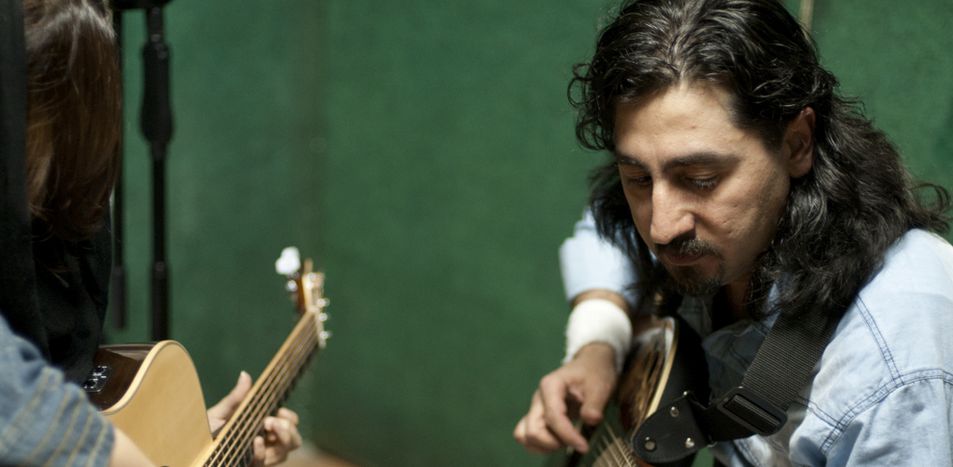
Underground music in Iran: Talkin' bout a revolution
Published on
Translation by:
Arwen DeweyWhen you listen to the clandestine artistic creations coming out of Iran, you hear the voice of youthful revolt. The first anniversary of the death of a musical idol gives us the opportunity to take a closer look at the relationship between the Iranian regime and its underground culture.
A year ago a young pop singer died of cancer in Tehran, deeply upsetting millions of Iranians. Recently, his fans paid homage to a widely admired man known as the "king of Iranian pop". Morteza Pacha'i sang pop music, which in Iran is usually done in secret.
When this courageous singer died of cancer at age 30 in Tehran, Iranian society experienced an unrivalled phenomenon: public parks and plazas filled with huge gatherings of young people paying him homage and humming his songs.
His very young age, his talent, and his brave fight against cancer all contributed to his popularity – illness didn't keep Pacha'i from giving concerts between chemotherapy treatments. But there was another, more important reason: supporting an artist who went against the religious system let people make their own statement of independence, showing their insubordination.
State media understood the size and importance of the situation, and immediately issued warnings: "If we continue to create obstacles for our young people it will only lead to trouble," stated one government official.
The public demonstrations following the death of the young artist brought two realities to light: that the underground music world is powerful in Iran, and that Iranian society is ripe for revolution, just like it was 2009.
Anaesthetising Society
The Islamic regime considers all forms of rhythmic, joyous music as fundamentally "haram" (forbidden by Islamic law. ed.), as is playing a musical instrument in public or listening to a woman sing. That's why you'll never see a concert on Iranian TV, or a woman showing off her musical skills in public. The Islamic leaders, in an attempt to anaesthetise society, allow only traditional forms of music, which are gloomy and sombre.
In the 1990s, young artists began fighting the system, developing not only Iranian pop music but also rock, heavy metal, rap and Persian hip hop. An underground musical world developed within the country, defying barriers imposed by the authorities. Songs are recorded under difficult conditions, in makeshift studios set up in basements, and musicians run the risk of being caught by "morality police" in frequent raids. If caught, they are accused of "collusion with satanic groups", "immorality" and of being "instruments of the Western cultural assault".
Young artists' ongoing efforts to break down the established order lead them to explore new avenues of artistic creation. They are inspired by Western rap and hip-hop, but they are also developing their own original Persian style. The most popular subjects in Iranian rap are the evils of society – such as addiction, prostitution, and injustice – political and economic crises, romantic relationships and other realities of young, urban Iranian culture.
Iranian rap broadly thumbs its nose at the current regime. It isn't anti-religion, but it rejects the culture of religious dictatorship and mocks a system based on money and corruption. It counts on its own strengths and on collective action to create a brighter future. In Iran, to create rap is to rebel against the mullahs' unjust regime.
Human rights activists insist that now is the time to support culture by being open-minded. But President Hassan Rohani has made no changes concerning fundamental freedoms, and artists are still silenced by the Islamist framework imposed by those in power.
Translated from Iran : la musique underground continue de percer



